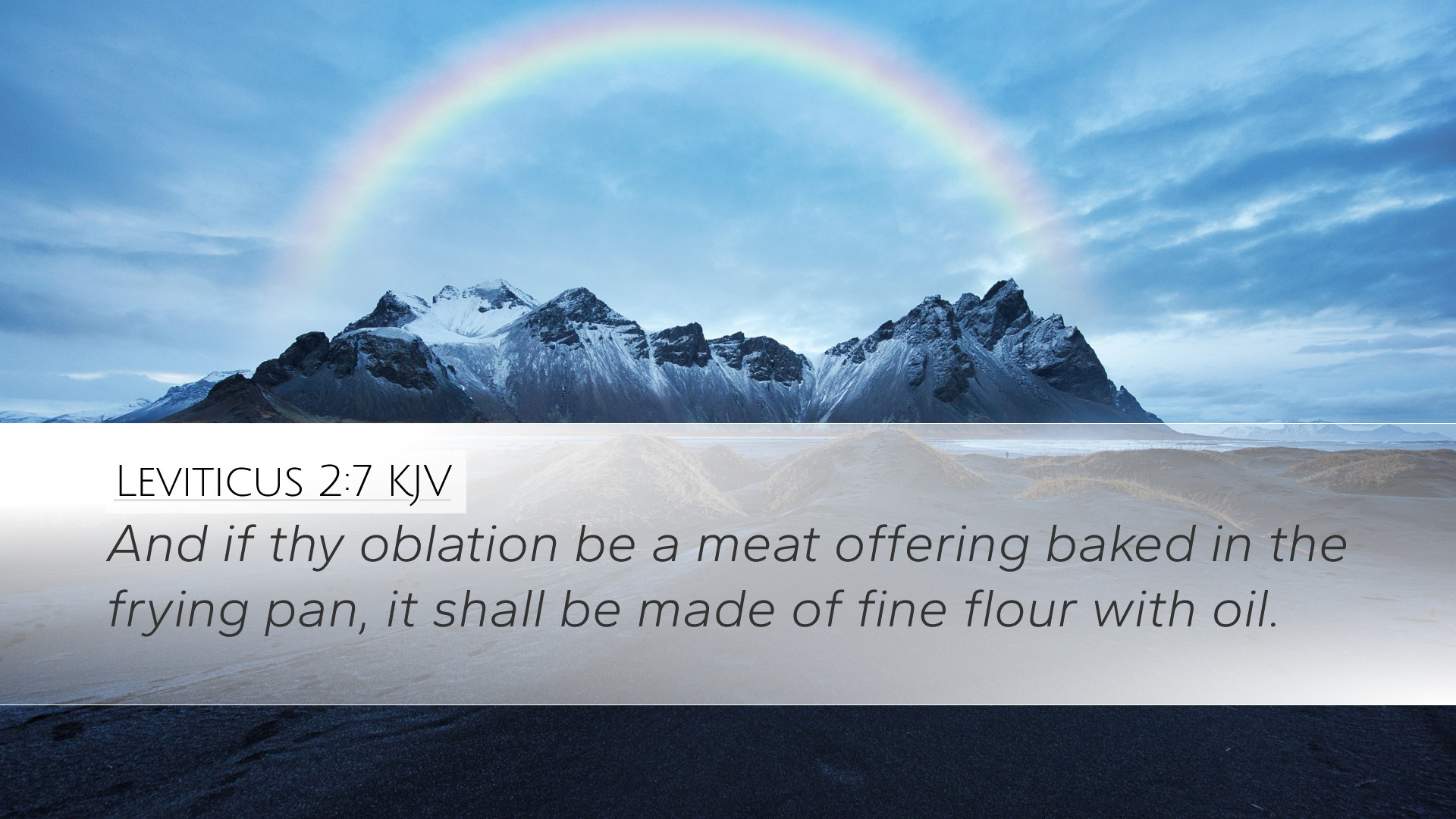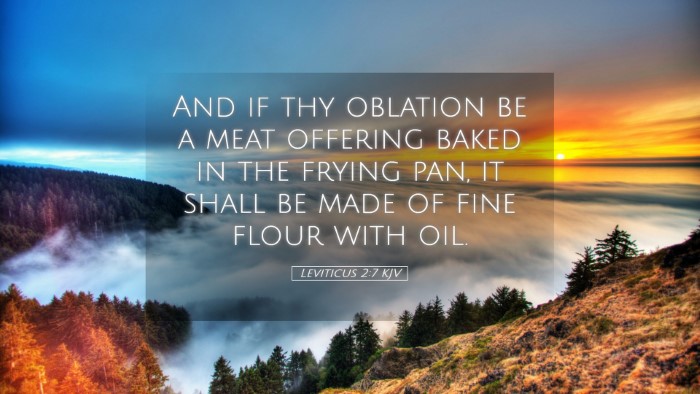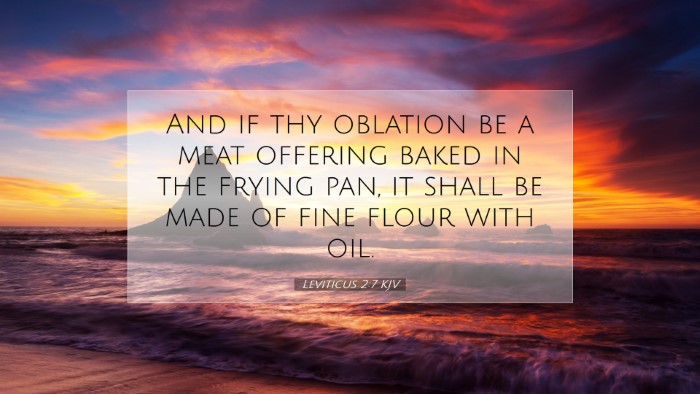Commentary on Leviticus 2:7
Verse: "And if your offering is a grain offering baked in a pan, it shall be made of fine flour with oil." - Leviticus 2:7
Introduction
Leviticus 2:7 belongs to the laws pertaining to the grain offerings, an integral part of the sacrificial system established for the Israelites. These offerings were significant for the worship and acknowledgment of God’s provision and mercy. The nature of this verse emphasizes the quality and preparation of the offerings presented at the altar.
Context and Significance
In understanding Leviticus 2:7, it is essential to place it in the broader context of Levitical law, where the Israelites were instructed on various offerings to maintain a right relationship with God.
- Grain Offerings: These offerings were a recognition of God's sustenance and blessings, differing from sin offerings, which dealt with atonement.
- Preparation: The precise method of preparation was not arbitrary but signified the reverence owed to God. The quality of the grain (fine flour) emphasized that offerings were to be presented with the best of what one had.
Insights from Public Domain Commentaries
Matthew Henry's Commentary
Matthew Henry emphasizes the importance of the ingredients and preparation of the offering. He notes that the requirement for fine flour indicates that God desires our best and that offerings must be unblemished. This mirrors the call for believers to offer their lives as living sacrifices, holy and acceptable to God (Romans 12:1).
Albert Barnes' Notes
Albert Barnes remarks on the symbolism behind the grain offering. He argues that grain, being a staple of human diet, signifies God’s providence. The act of mixing oil further suggests the enhancement of offerings, symbolizing the Holy Spirit's role in the life of a believer. Thus, even in seemingly mundane offerings, there is profound theological depth reflecting on the relationship between sustenance, spirit, and worship.
Adam Clarke's Commentary
Adam Clarke focuses on the specifics of preparation—mentioning that the manner in which the offering is treated reflects the attitude of the offerer. Clarke notes, "Baked in a pan" indicates a process that requires skill and care, further conveying that worship must not be haphazard or careless. It emphasizes that the act of preparing and presenting offerings can be likened to the diligence required in prayer and service to God.
Theological Reflections
The various insights shed light on the weighty implications of this verse for contemporary worship. The quality of the offerings represents our spiritual maturity and devotion.
- Offering the Best: Every offering we present to God, whether in worship, service, or obedience, should represent our best efforts.
- Symbolism of Preparation: The care taken in preparation signifies the importance of intentional worship and heart attitude when approaching God.
Application for Pastors, Students, and Theologians
This verse challenges leaders and learners alike to examine how they prepare their lives and ministries before God. As pastors, the call is to ensure that what is offered in preaching and teaching truly glorifies God, centered in the Word and enriched by the Spirit.
For students of theology, there is a call to delve deeply into the Word, understanding the implications of the Old Testament sacrificial system as foundational to the New Covenant. As theologians, it is essential to interpret these passages not as mere historical relics but as living texts that inform contemporary Christian practice.
Concluding Thoughts
In conclusion, Leviticus 2:7 serves as a profound reminder of the nature of our offerings to God. Whether they be acts of service, worship, or personal devotion, they should be characterized by quality, intentionality, and a heart aligned with His will. As we reflect on this verse and its implications, may we strive to offer ourselves in a manner that reflects the richness of God's provision and the excellence He deserves.


